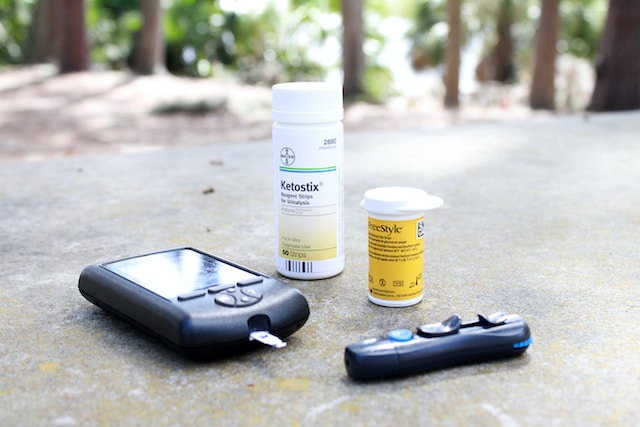Managing blood sugar levels is crucial for individuals with diabetes to maintain good health and prevent complications. Here is a comprehensive guide to help you effectively manage your blood sugar levels: Monitor Your Blood Sugar: Regularly monitor your blood sugar levels using a glucose meter or a continuous glucose monitoring (CGM) system. Follow the monitoring
Managing blood sugar levels is crucial for individuals with diabetes to maintain good health and prevent complications. Here is a comprehensive guide to help you effectively manage your blood sugar levels:
- Monitor Your Blood Sugar: Regularly monitor your blood sugar levels using a glucose meter or a continuous glucose monitoring (CGM) system. Follow the monitoring schedule recommended by your healthcare provider. This helps you understand how your body responds to different foods, activities, medications, and lifestyle factors.
- Understand Target Ranges: Work with your healthcare team to determine your target blood sugar ranges for different times of the day, such as before meals, after meals, and before bedtime. These target ranges will guide you in adjusting your diabetes management strategies.
- Healthy Eating: Follow a balanced and nutritious meal plan that suits your specific needs. Aim for a variety of fruits, vegetables, whole grains, lean proteins, and healthy fats. Monitor your carbohydrate intake and distribute it evenly throughout the day. Consider working with a registered dietitian to create a personalized meal plan.
- Portion Control: Be mindful of portion sizes to avoid overeating. Use measuring cups, food scales, or visual references to help control portion sizes and manage your carbohydrate intake effectively.
- Carbohydrate Counting: Learn how to count carbohydrates to determine the amount of insulin or medication you may need. This skill allows you to match your insulin doses with the carbohydrates in your meals.
- Regular Physical Activity: Engage in regular physical activity as recommended by your healthcare team. Exercise helps lower blood sugar levels, increase insulin sensitivity, and improve overall health. Aim for at least 150 minutes of moderate-intensity aerobic activity per week, along with strength training exercises.
- Medications and Insulin Therapy: Take your prescribed medications or insulin as directed by your healthcare provider. Follow the recommended dosage and timing instructions. Learn proper injection techniques if you are using insulin. Seek clarification from your healthcare team if you have any doubts or concerns about your medications.
- Stress Management: Practice stress management techniques as stress can affect blood sugar levels. Engage in activities that help you relax and reduce stress, such as deep breathing, meditation, yoga, or hobbies you enjoy.
- Stay Hydrated: Drink plenty of water throughout the day to stay hydrated. Limit the consumption of sugary beverages as they can raise blood sugar levels.
- Get Enough Sleep: Prioritize quality sleep as it plays a role in managing blood sugar levels and overall well-being. Aim for 7-9 hours of uninterrupted sleep each night.
- Regular Check-ups: Schedule regular check-ups with your healthcare team to monitor your blood sugar levels, assess overall health, and discuss any concerns or questions. These check-ups allow for adjustments to your treatment plan if needed.
- Diabetes Education and Support: Seek diabetes education and support to enhance your knowledge and skills in managing your condition. Attend diabetes self-management classes or support groups to learn from healthcare professionals and connect with others who share similar experiences.
- Be Prepared for Emergencies: Keep a source of fast-acting glucose, such as glucose tablets or gel, with you at all times in case of hypoglycemia (low blood sugar). Inform family members, friends, and coworkers about what to do in case of a hypoglycemic or hyperglycemic emergency.
- Emotional Well-being: Take care of your emotional well-being as living with diabetes can be challenging. Seek support from loved ones, join diabetes support groups, or consider counseling if needed.
Remember, diabetes management is highly individualized. Work closely with your healthcare team to develop a personalized plan that meets your specific needs and goals. Regularly review and adjust your management strategies based on your blood sugar patterns, lifestyle changes, and healthcare provider’s recommendations. With proper self-care and support, you can effectively manage your blood sugar levels and live a healthy life with diabetes.

















Leave a Comment
Your email address will not be published. Required fields are marked with *